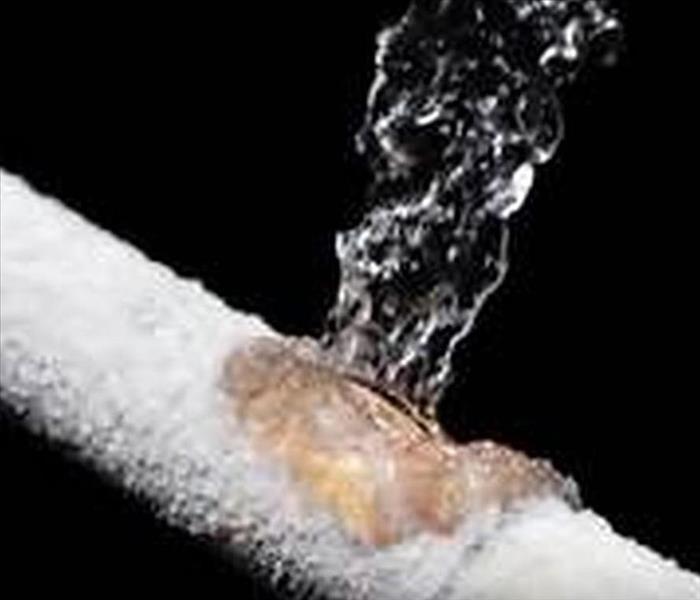Winter Freeze Checklist for Your Southern McHenry County
12/1/2017 (Permalink)
Winter Freeze Checklist
Winter season is upon us, it brings along with it one the most common water issues frozen pipes.
As soon as thermometers drop into the freezing zone, the following tips will help you avoid unpleasant surprises that may come from broken water pipes on your property. When it freezes, water in a pipe expands. This creates pressure on the pipe and could cause it to break, regardless if it is plastic or metal. Pipes that freeze most frequently are swimming pool feeder lines, outdoor hose bibs, and water supply lines and unheated interior areas like basements, attics, garages and crawl spaces. As well, pipes that run against exterior walls that have little or no insulation are also subject to freezing.
We are happy to give you this Winter Freeze Checklist so that you can relax and enjoy this holiday season. Winters can be harsh on household plumbing so don’t forget to protect the water meter and pipes from freezing temperatures. Those located on outside walls, in basements or in crawl spaces, are particularly vulnerable to the cold. They can easily freeze and break during cold spells and lead to costly repairs. Please follow these important steps to help prevent expensive problems later.
- Disconnect and drain the garden hose connection. This will help prevent outside faucets and pipes from freezing, leaking or breaking.
- If there are water supply lines in the garage, keep it closed and seal air leaks.
- Close outside vents, crawl spaces and doors so cold air doesn’t seep inside.
- Repair broken windows and seal cracks in the walls.
- Insulate, Insulate, Insulate
- Open you the cabinet doors in your kitchen and bathroom to allow warmer air to circulate around the plumbing.
- Wrap water lines and meters in commercial insulation.
- When the weather is very cold outside, let the cold water drip from the faucet served by exposed pipes. Running water through the pipe - even at a trickle - helps prevent pipes from freezing.
- Wrap pipes subject to cold or freezing in heat tape available from hardware stores. It must be kept plugged in all winter.
- Locate The Shut-off Valves
- Make sure the valves on either side of the water meter are working properly.
- Place a tag on the main shut-off valve. Make sure everyone in the house knows where it is and how to operate it in an emergency.
- Check The Heat
- If you’re going away, keep a minimum amount of heat on in the house. This will help protect the pipes in case the temperature drops.
- If you plan to turn the heat off, drain all the water from the pipes, toilets and water heater. Turn off the power source to the water heater. If your heater operates on gas, turn the heater on “pilot.”
If you have any questions or you need emergency services call us at 847-516-1600.






 24/7 Emergency Service
24/7 Emergency Service
